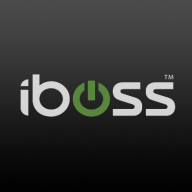


Microsoft Entra ID and JumpCloud compete in the identity management category. Microsoft Entra ID seems to have the upper hand due to its seamless integration with Microsoft 365, extensive security features, and capabilities.
Features: Microsoft Entra ID offers seamless integration with Microsoft 365, extensive security features, and single sign-on. JumpCloud provides versatility across operating systems like macOS and Linux, centralized management of user access, and device management capabilities.
Room for Improvement: Microsoft Entra ID requires enhancements in documentation for non-Microsoft integrations, user interface, and pricing understanding. JumpCloud needs to expand integrations beyond primary platforms and improve its user interface for easier navigation.
Ease of Deployment and Customer Service: Microsoft Entra ID is praised for simple deployment within the Microsoft ecosystem, whereas JumpCloud's deployment is straightforward for cloud environments but might need more effort otherwise. Microsoft Entra ID's customer service receives mixed reviews, whereas JumpCloud's is praised for responsiveness.
Pricing and ROI: Microsoft Entra ID is cost-effective for existing Microsoft product users but has complex pricing and additional costs for premium features. JumpCloud's competitive pricing, especially for small to medium businesses, offers comprehensive access management services.

| Company Size | Count |
|---|---|
| Small Business | 6 |
| Midsize Enterprise | 6 |
| Large Enterprise | 6 |
| Company Size | Count |
|---|---|
| Small Business | 19 |
| Midsize Enterprise | 5 |
| Large Enterprise | 3 |
| Company Size | Count |
|---|---|
| Small Business | 85 |
| Midsize Enterprise | 38 |
| Large Enterprise | 155 |
Iboss offers a comprehensive cloud-based security platform valued for its scalability and autonomous features, ensuring robust security with easy deployment and management capabilities.
Renowned for its robust security architecture, Iboss integrates seamlessly within diverse networks, delivering efficient granular filtering and advanced content categorization. Its single pane of glass console provides ease of management, allowing rapid scalability suitable for rapidly deploying environments. Operates in BYOD setups due to inline filtering without device installation. Integration with cloud-based applications enhances user control, and features like SASE, SSL inspection, and ChatGPT risk protection stand as highlights. Despite its strengths, users have pointed out areas for enhancement like direct navigation in reports, SSL decryption, and better cloud integration while having room to improve data loss prevention.
What are the most important features of Iboss?The usage of Iboss spans educational institutions, specifically K-12, to enforce internet policies, protect data, and support remote work environments. It provides web filtering and security frameworks to ensure safe browsing. Its platform-as-a-service model offers flexibility for both cloud-based and on-premises requirements, integrating seamlessly to deliver enhanced security features suitable for various deployment needs including zero trust, CASB, and network security for work-from-home setups.
JumpCloud offers efficient device management, single sign-on, and integration capabilities. It integrates seamlessly with Microsoft 365 and Google Workspace, streamlining user management across diverse environments.
JumpCloud delivers device, user, and application management across platforms like Windows, Mac, Linux, and cloud services such as AWS and Azure. Acting as a cloud-based directory, it facilitates single sign-on and identity access management, making it an attractive replacement for Active Directory and LDAP directories. Its policy management and centralized directory simplify user and device administration, offering a user-friendly interface with flexible access control and remote management. Organizations can experience streamlined onboarding and offboarding processes, robust authentication, and scalability. Despite being powerful, room for improvement is noted in alert capabilities, comprehensive MDM for Windows, multi-tenant features, and API reliability.
What are the key features of JumpCloud?Companies across industries utilize JumpCloud for comprehensive management of devices and user identities. It is especially beneficial in technology-driven sectors where centralized directory services replace traditional Active Directory and LDAP models. Organizations employing platforms like AWS and Azure find it essential for maintaining efficient and secure access management.
Microsoft Entra ID is an advanced identity and access management service offering seamless single sign-on, multifactor authentication, and centralized user access across applications, enhancing security and efficiency for organizations transitioning to cloud-based environments.
Recognized for its centralized management, Microsoft Entra ID significantly boosts organizational security by integrating features such as conditional access and identity protection. It supports a wide array of applications, facilitating a secure transition from on-premises to scalable cloud environments. By adopting robust security measures and flexible identity management, organizations can streamline operations and ensure consistent user experiences. However, challenges like confusing licensing costs, outdated documentation, and limited integration with non-Microsoft applications persist. Enhancements in technical support, interface design, and more granular permissions are needed to address these issues effectively.
What are the key features of Microsoft Entra ID?In healthcare, Microsoft Entra ID facilitates secure patient record access and compliance with industry regulations. Financial institutions rely on it for robust security measures in safeguarding client data. In the education sector, it streamlines access to online resources for students and faculty. Global enterprises benefit from its ability to manage complex identity frameworks across multiple regions, ensuring reliable security amidst increasing cyber threats.
We monitor all Single Sign-On (SSO) reviews to prevent fraudulent reviews and keep review quality high. We do not post reviews by company employees or direct competitors. We validate each review for authenticity via cross-reference with LinkedIn, and personal follow-up with the reviewer when necessary.